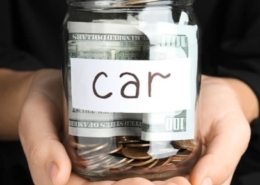Buyer’s Remorse: Steps to Handle Post-Purchase Regret
Regretting your car purchase? Discover top tips to handle buyer’s remorse and find peace of mind.
Tackling Buyer’s Remorse Head-On
Dealing with buyer’s remorse can be unsettling, especially after a major purchase like a car. What started as an exciting, dream-come-true moment—driving off the lot in your new ride—can quickly turn into a sinking feeling of doubt and anxiety.
That shiny new car once represented freedom or status may now feel like an overwhelming financial burden. You might even question the decision: “Did I make a mistake? Was this the right choice?” These thoughts can spiral into regret.
Key Takeaways
- Acknowledge Your Emotions: Recognize buyer’s remorse as a normal reaction.
- Focus on the Positives: Remember why you chose the car and its benefits.
- Evaluate Options: Assess your budget and consider refinancing or selling.
But here’s the thing: you’re not alone. Buyer’s remorse is a common experience for many people, especially regarding big-ticket items like vehicles. While uncomfortable, it’s essential to recognize that this feeling doesn’t have to define your relationship with your new car. The good news is that these emotions are manageable, and you can move past them with the right approach.
So, let’s examine why buyer’s remorse occurs, how to handle it, and steps you can take to feel confident in your decision.
Car Buying Tip: Buying a car today can be pricey, with many paying more than the retail price. However, you can still find a great deal by requesting a free price quote to compare local dealer offers.
Understanding Buyer’s Remorse: What Is It?
Buyer’s remorse is the sinking feeling of regret after making a purchase. It occurs when you start questioning whether you made the right decision, particularly when a lot of money is involved, like buying a new car.
In the automotive world, the stakes are high. A vehicle is a significant investment and something you’ll likely be stuck with for a while. Second thoughts could stem from financial stress, comparison with other options, or feeling rushed by a salesperson into the decision.
Why Does It Happen?
Buyer’s remorse happens for a variety of reasons, but three major culprits typically stand out:
- Financial Concerns – After considering the long-term cost of payments, maintenance, and insurance, the car may no longer seem like the ideal choice.
- Comparison with Alternatives – You might see a better deal or feel you didn’t shop around enough.
- Emotional Overload – Big decisions made under pressure can leave you feeling overwhelmed, especially if you have lingering doubts during the buying process.
Knowing why you feel remorseful is the first step toward addressing the issue.
- How to Buy a New Car Below Factory Invoice Price – True dealer cost and the factory invoice price are not the same… dealer cost can be much lower.
- Figure a Fair Profit New Car Offer – How to calculate a fair profit new car offer.
- How to Buy a New Car Online – Not sure where to start? Use my step-by-step guide on how to buy a new car online.
Acknowledge Your Feelings
It’s okay to feel regret; trying to suppress that emotion will only worsen things. Be kind to yourself and recognize that remorse is a normal response to a large purchase.
Think of it this way: you wouldn’t be human if you didn’t have these kinds of feelings from time to time. This is your brain’s way of saying, “Wait a minute! We just spent how much?”
Practical Steps to Acknowledge and Accept Remorse
- Write Down Your Thoughts: Sometimes, expressing your feelings helps you understand what’s driving your regret.
- Take a Break: Stop thinking about the car. Focus on something else for a few days to let your emotions settle.
- Talk to a Friend: Share your thoughts with someone you trust who can offer perspective or reassurance.
Look at the Positives
Remember what attracted you to the car in the first place. Did you love the fuel efficiency, or maybe it had some features you always wanted? Was it the perfect car for your family? Remind yourself why you were excited to buy it.
Reframe the Situation
One effective way to beat buyer’s remorse is to reframe your thoughts. Think about what you’ve gained instead of focusing on what you might lose. Are you saving time on commutes? Is the car safer or more reliable than your previous one? Shifting your focus can help reduce the intensity of regret.
Real-Time Bargain Hunting: Turn to Edmunds for instant access to the latest and greatest local deals, saving you time, money, and stress.
Evaluate the Financial Impact
Money is often the source of buyer’s remorse. If you’re feeling anxious about finances, it’s important to evaluate the impact of your purchase. Did you stretch your budget too far? Is it something you can adjust or plan for? Taking stock of your financial situation can help you feel more in control.
Create a Budget Plan
If money is the issue, create a financial plan to manage the payments and other associated costs. Setting a clear, manageable budget will give you peace of mind and reduce your stress.
Consider Refinancing or Selling
Refinancing your car loan can sometimes lower your monthly payments, easing the burden. If you find the purchase unsustainable, you may also consider selling the car or trading it for something that better fits your budget.
Consider Alternatives to Reverse the Purchase
If buyer’s remorse is unbearable, you may still have options to reverse or mitigate the decision.
Cooling-Off Period and Return Policies
Some states or dealerships might have a cooling-off period or return policy that allows you to return a car after you’ve purchased it. It’s worth checking the paperwork to see if your purchase qualifies.
However, once you sign a contract, the car sale is often final, so this isn’t always a viable option.
Explore Trade-Ins
If you’re seriously unhappy, trading your vehicle for another might be an option. However, remember that trade-ins might not offer the same value as a private sale.
Learn From the Experience
Buyer’s remorse can be a great teacher. The next time you consider a major purchase, you’ll know to be more cautious. Use this situation to reflect on how you can make better decisions in the future, such as doing more research or taking more time to consider your options.
Tips for Avoiding Buyer’s Remorse in the Future
- Set a Budget in Advance: Before visiting a dealership, determine exactly how much you’re willing to spend.
- Test Drive Multiple Options: Don’t buy the first car you see. Test several to make sure you’re getting what you want.
- Sleep on the Decision: Give yourself at least 24 hours to consider a major purchase before committing.
FAQs
What is buyer’s remorse?
Buyer’s remorse is the feeling of regret after making a significant purchase, such as a car.
How can I avoid buyer’s remorse in the future?
To avoid buyer’s remorse, set a budget ahead of time, take your time researching options, and sleep on the decision before making a final commitment.
Is there a way to return a car if I regret the purchase?
In some cases, yes. Some dealerships offer a cooling-off period or return policy, but it’s essential to check the specific terms of your purchase agreement.
Can I trade in my car if I regret buying it?
Yes, trading in the vehicle for another is an option, although you may not get full value for the car in a trade-in situation.
What should I do if I can’t afford my car payments?
Consider refinancing the car loan to reduce monthly payments or explore options like selling the vehicle to alleviate the financial burden.
How long does buyer’s remorse typically last?
Buyer’s remorse can last anywhere from a few days to several weeks, but acknowledging your feelings and taking practical steps can help ease the regret faster.
Conclusion: How to Deal With Buyer’s Remorse
Dealing with buyer’s remorse after purchasing a car can feel overwhelming, but it doesn’t have to define your experience. Instead of letting regret take control, focus on understanding and addressing the emotions behind it. Acknowledge your feelings without judgment and give yourself the space to process them. By reframing the situation, you can shift your perspective from regret to appreciation, remembering the reasons why you chose the vehicle in the first place. Take practical steps, whether that means reassessing your finances, exploring refinancing options, or even considering a trade-in if necessary.
Ultimately, no purchase decision is flawless; every choice comes with trade-offs. The key is to embrace the positives and make the best of what you have, allowing yourself to move forward confidently. With the right mindset, you’ll soon see your new car not as a source of regret but as a well-considered decision that fits your needs and lifestyle.
















